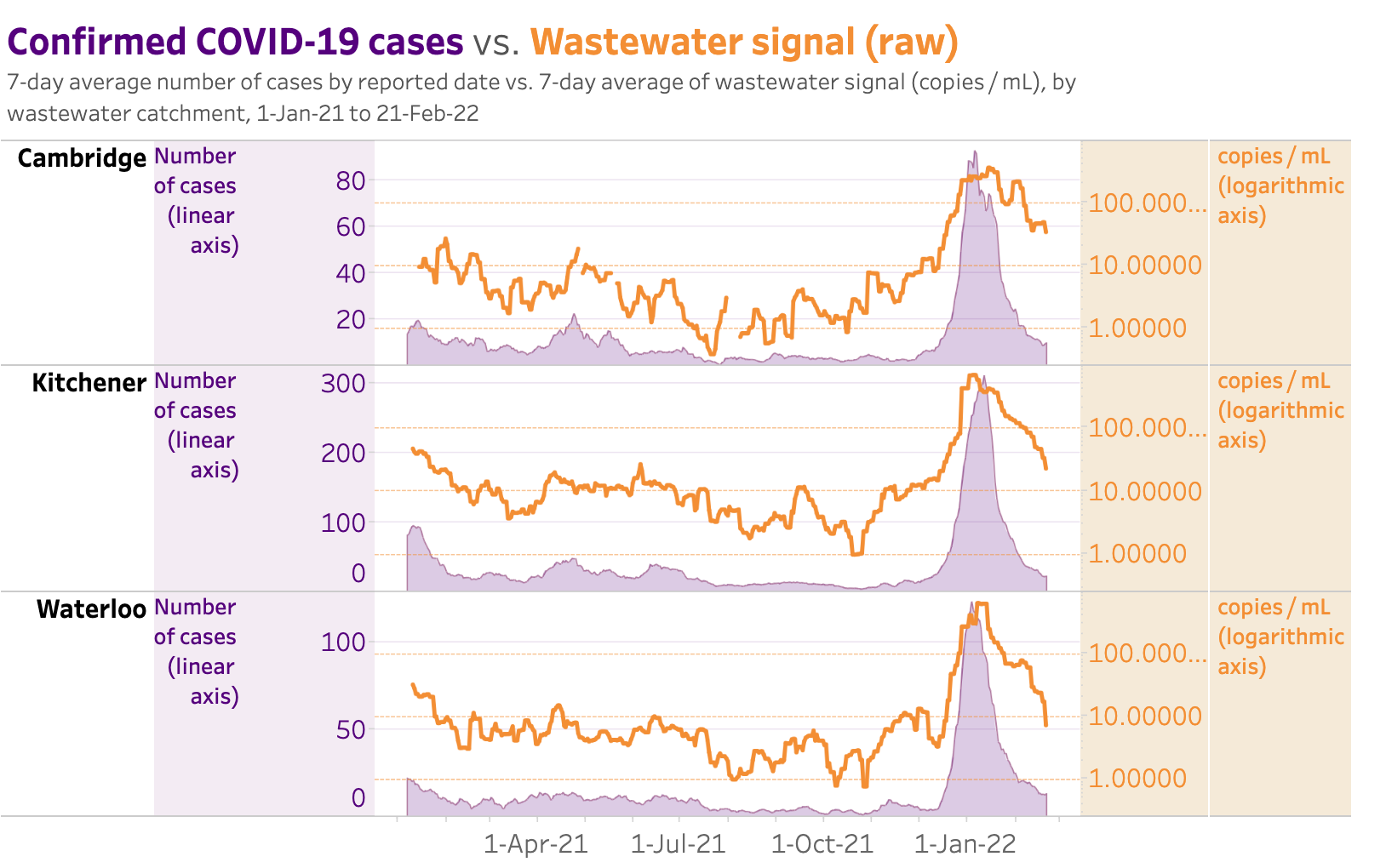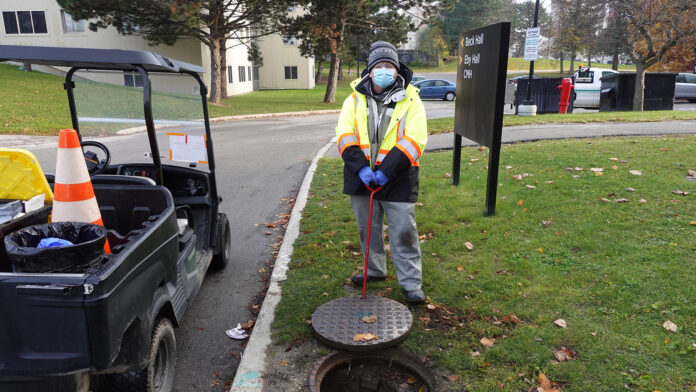Levels of COVID-19 found in wastewater from the University of Waterloo have begun to decline, a trend in line with the steady decrease of COVID-19 cases in the Waterloo region.

Since Jan. 12, when COVID-19 levels found in wastewater peaked, the numbers have steadily decreased, now nearing fall 2021 levels, according to UW Professor Mark Servos. Along with his team, Servos spearheaded UW’s wastewater testing program, using his previous research on the impacts of certain contaminants on aquatic life to develop a wastewater testing program in order to detect COVID-19 fragments.
In September 2021, UW launched the wastewater testing program in five residence buildings: Ron Eydt Village, Village 1, Mackenzie King Village, UW Place and Claudette Millar Hall. Wastewater from these buildings is tested three times a week for COVID-19 fragments which can be shed by both symptomatic and asymptomatic individuals.
Upon detection of positive COVID-19 fragments, residents of the building are notified via email that said fragments have been found in that building’s wastewater. However, despite the university’s COVID-19 website stating that positive fragments do not necessarily indicate that a resident in the building has COVID-19, that information is nowhere to be found in the emails sent out to affected communities notifying them of positive fragments in the wastewater.
Wastewater testing programs have also been launched at schools like the University of Toronto, and Servos’ team has tracked COVID-19 levels in the sewage systems of the Waterloo region including Kitchener, Waterloo and Cambridge.
Despite the downward trend, Servos reminded community members to prioritize following COVID-19 public health protocols to maintain positive progress. Though the province of Ontario has lightened certain public health measures due to the downward trend in cases, such as increasing capacity limits for both indoor and outdoor events and removing capacity limits entirely for venues requiring proof of vaccination, certain measures are still in place, including mask mandates in public spaces.
Dr. Hsiu-Li Wang, medical officer of health for the Waterloo region, echoed Servos’ reminder in a press conference on Feb. 11, stating that although all signs showed COVID-19 levels had slowed or plateaued, levels still remained “high relative to previous waves.”
Part of wastewater testing’s popularity stems from the fact that testing wastewater for COVID-19 fragments may be able to fill in gaps that more conventional forms of testing, such as PCR tests, cannot cover. Restrictions on who can take PCR tests, as well as testing capacities being reached, can lead to the true number of cases going underreported, whereas the communal nature of wastewater collection ensures that all residents are included in testing.
Despite the benefits of wastewater testing, these programs are not fool-proof, requiring adequate funding (a lack of which caused a program running in Quebec to shut down), and wastewater systems that already test water for other substances (which often ends up relegating usage of the program to urban areas). However, according to a CBC interview with Bernadette Conant, CEO of the Canadian Water Network, research is being done on how to expand the program by finding how to use the technique in areas without sewers.






























